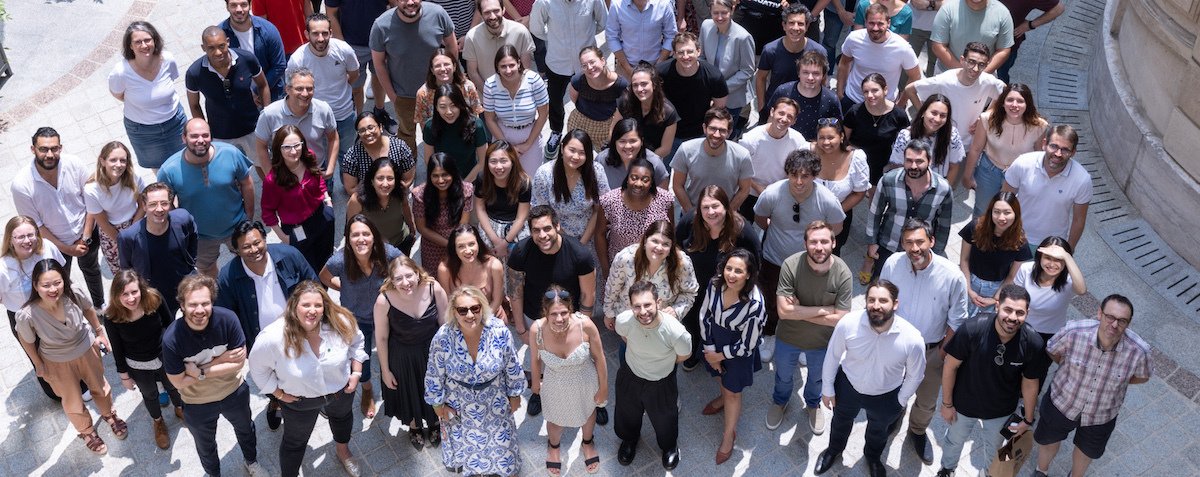For the sake of the youth, Niko Kappel accepts a reduction in his own salary. “I’m happy to forego something if I know that it will go directly to the juniors,” says the shot putter, who won the silver medal at the Paralympics in Paris.
Read more after the ad
Read more after the ad
The reason for the 29-year-old Swabian’s frugality: In order to strengthen young athletes in this country, the German Sports Aid Foundation wants to support the youngest top athletes with a sum of 100 euros a month from 2025 in accordance with its new funding concept. 2,000 young athletes from the so-called junior squad 1 are to benefit from this financial support from January 1st. However, since the Sports Aid Foundation cannot simply loosen up the additional 2.4 million euros required for this, savings must be made elsewhere – which brings us back to established athletes like Kappel.
Sporthilfe is presenting the future funding structure of Sporthilfe together with some of the best German athletes. Also present: fencer Léa Krüger, bobsleigh pilot Laura Nolte, shot putter Niko Kappel, swimming legend Franziska van Almsick and Sporthilfe board member Karin Orgeldinger (from left to right).
Source: Sporthilfe
The concept stipulates that athletes with a sports sponsorship position with the German army or the police will have to accept cuts. “We are the ones who can most easily make cuts,” says Olympic bobsleigh champion and sports soldier Laura Nolte. In addition, a fund has been dissolved and the Federal Ministry of the Interior is providing relief by taking over previous sports funding elsewhere.
Read more after the ad
Read more after the ad
The big picture for the ideas: German sport is looking for solutions to its medal problem. The precious metal tally at the 2024 Summer Olympics in Paris was even lower than in 2021 in Tokyo. German athletes made it onto the podium 33 times – four times less than three years previously. At least the Paralympic team collected six more medals than in Tokyo. Karin Orgeldinger does not see this as an indication of an end to the downward trend. She sits on the board of Sporthilfe and says of the development of the German medal tally: “That should not be our goal.”
Funding system becomes more inclusive
She is aware that 100 euros a month is more of a symbolic figure. At the same time, Orgeldinger believes that it strengthens the motivation of young top athletes. Former top German swimmer Franziska van Almsick confirms this theory: When the first 50 marks from the Sporthilfe landed in the young athlete’s account, she thought: “I am now part of something big.” Van Almsick is now 46 years old and has been deputy chairwoman of the board of the foundation for 14 years. The foundation ensures that top athletes can focus as much as possible on their athletic lives and not on earning money through financial support.
Other components of the support system, which is intended to provide gold with the help of money: It will be more inclusive – that is, there will no longer be a distinction between Olympic and Paralympic athletes. Overall, the system, which was developed over three years with the participation of athletes, is to be standardized and at the same time tailored more individually to the needs of those receiving support. According to Orgeldinger, the aim is to have “better conditions for achieving top performances at the highest level.”
The Sporthilfe initiative is part of the attempts to bring elite sport back to the top of the world. The German Olympic Sports Confederation (DOSB) has high hopes for a possible Olympic bid for 2036 or 2040. The federal government has pledged its support for this. And with a view to the 100 euros for the best young people, the circle is complete. After all, the possible medal winners from possible Olympic Games in Germany are already in the system, says Orgeldinger. And a little financial motivation on the long road can’t hurt.


